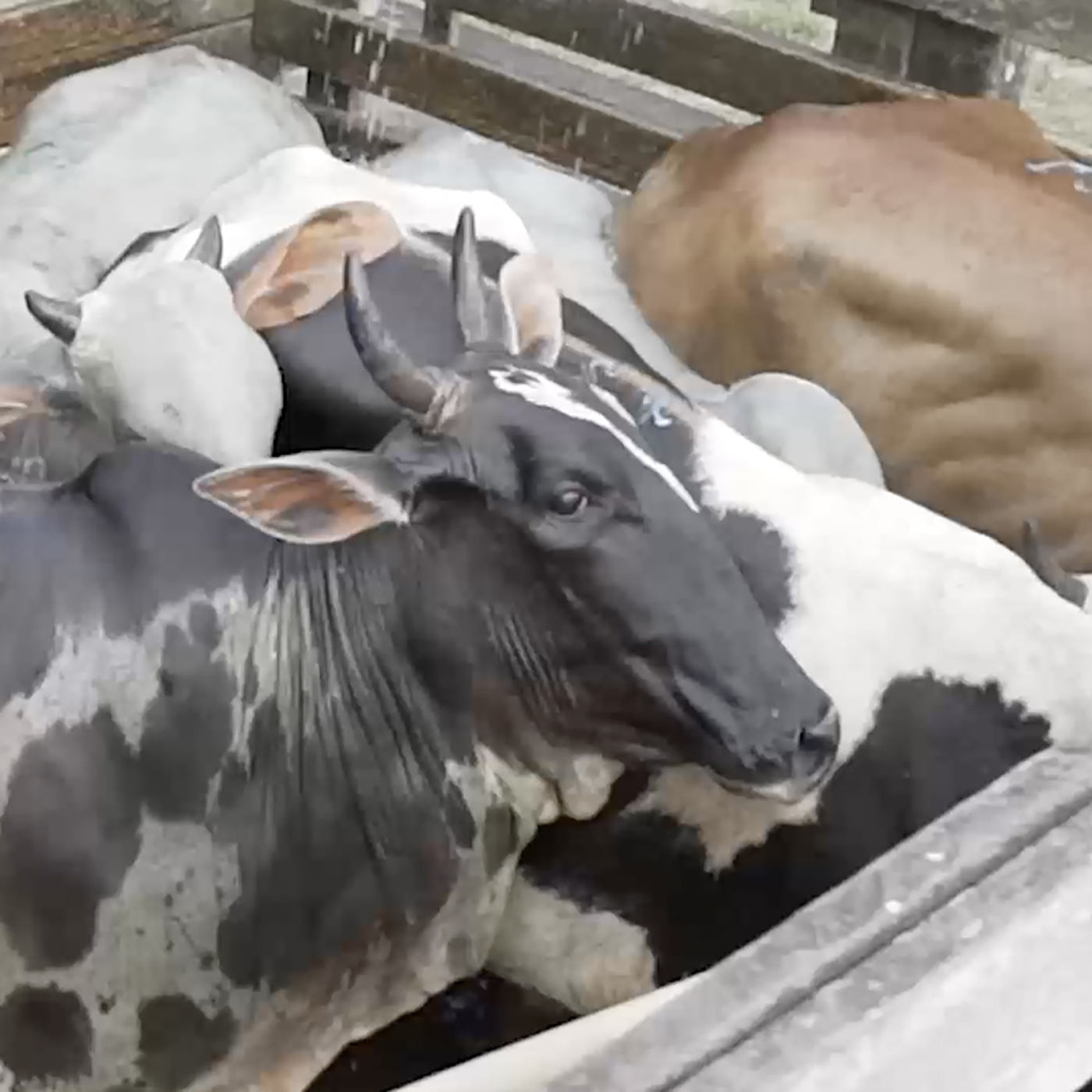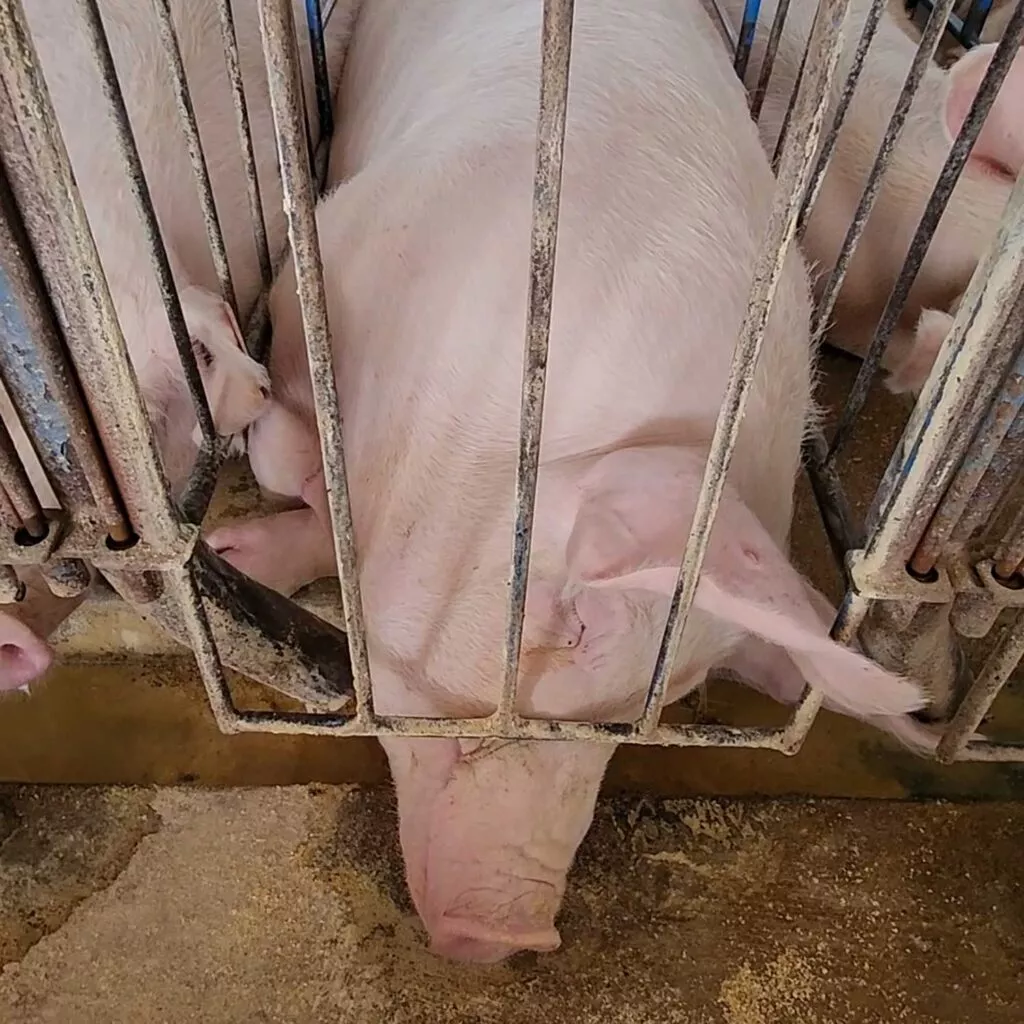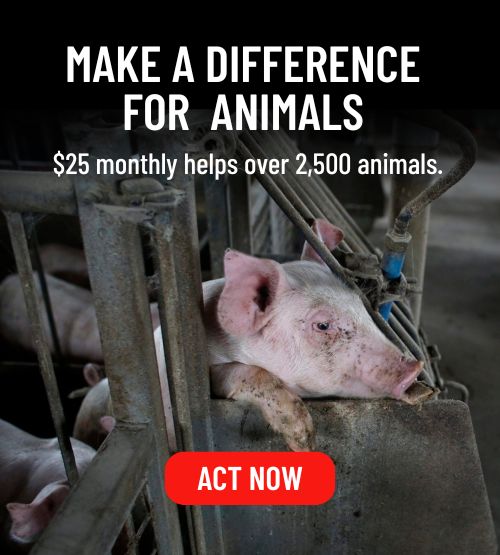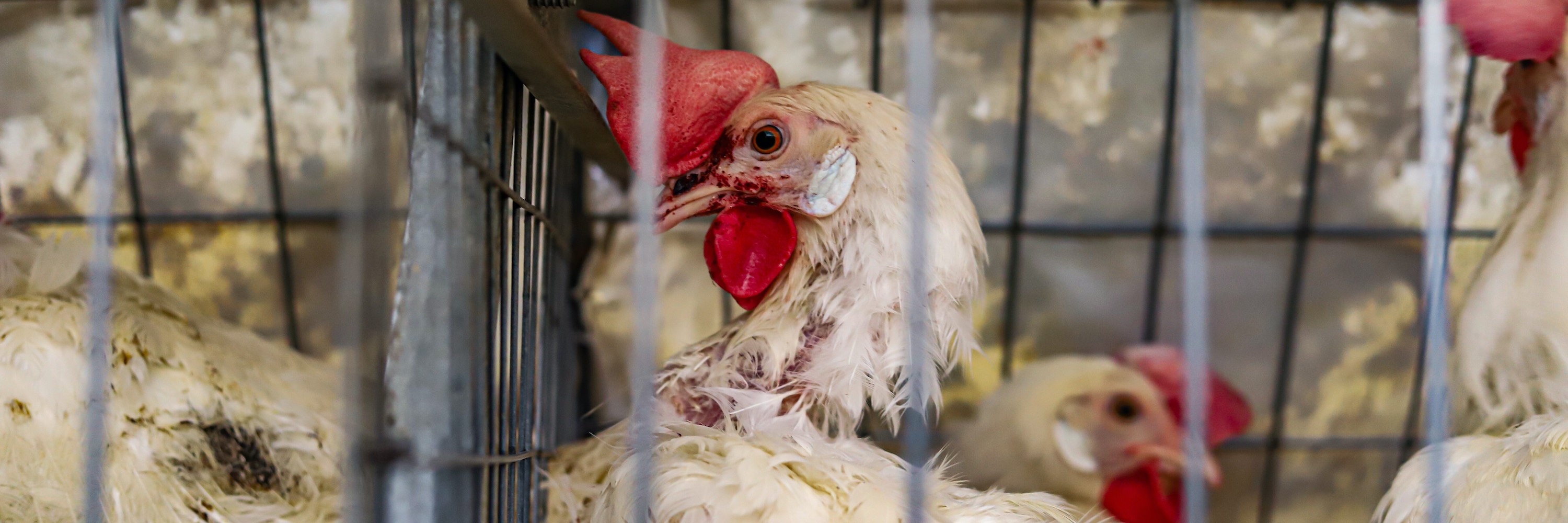
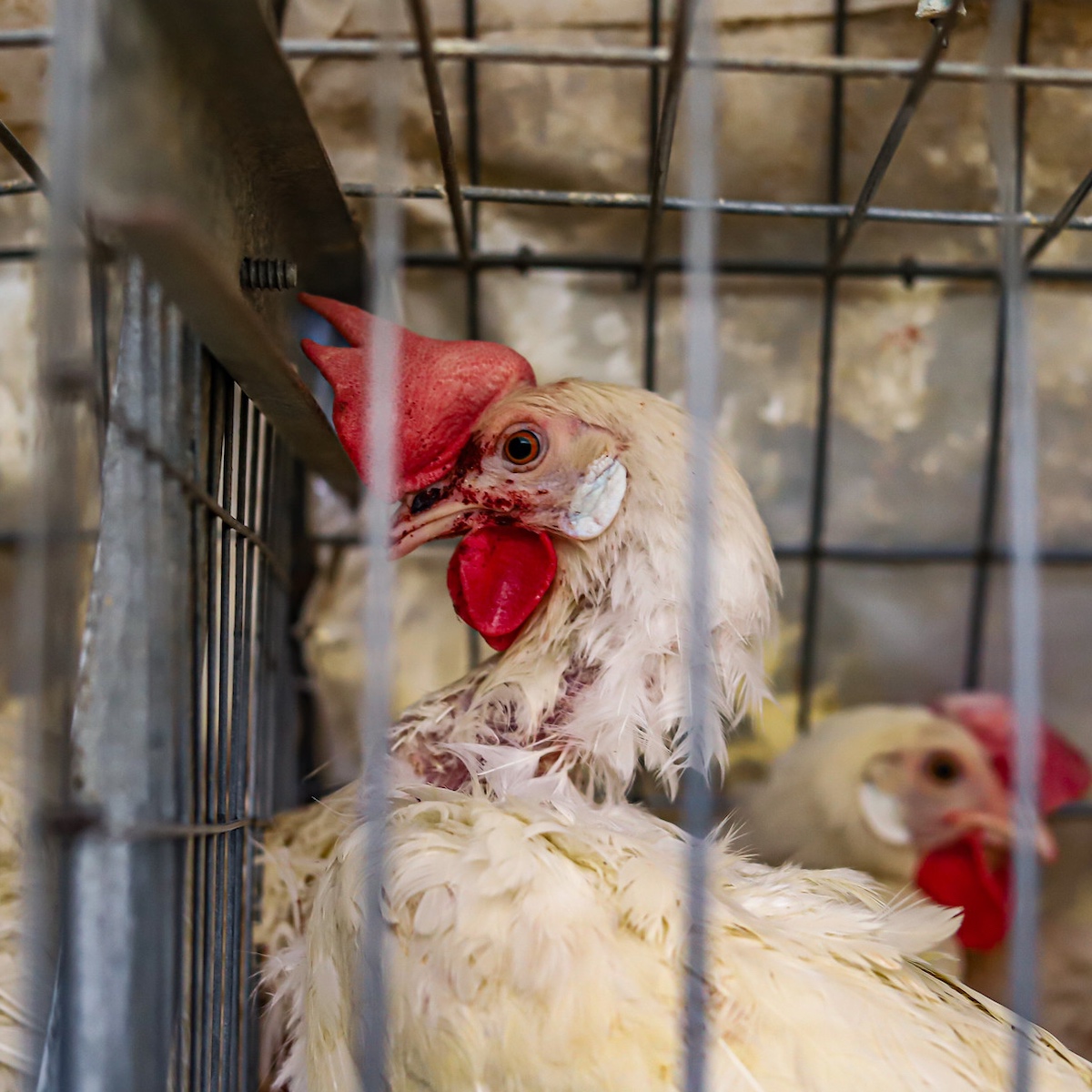
8 Things to Know About the Egg Industry
Did you know there’s more to a carton of eggs than what meets the eye?
In fact, if an egg could tell a story, it would be one of extreme confinement, abuse, and neglect. Across the globe, hens are held in rows upon rows of small cages, where they die prematurely from stress and exhaustion. Often, their bodies are left to rot next to their living companions.
Of course, all of this takes place out of the public eye. When unsuspecting consumers purchase eggs at the grocery store, they are often unaware of the suffering that went into producing them.
So, who pays the ultimate price for a morning omelet?
Let’s take a look:
1. A hen spends her entire life crowded in a small cage, where she will never see the light of day.
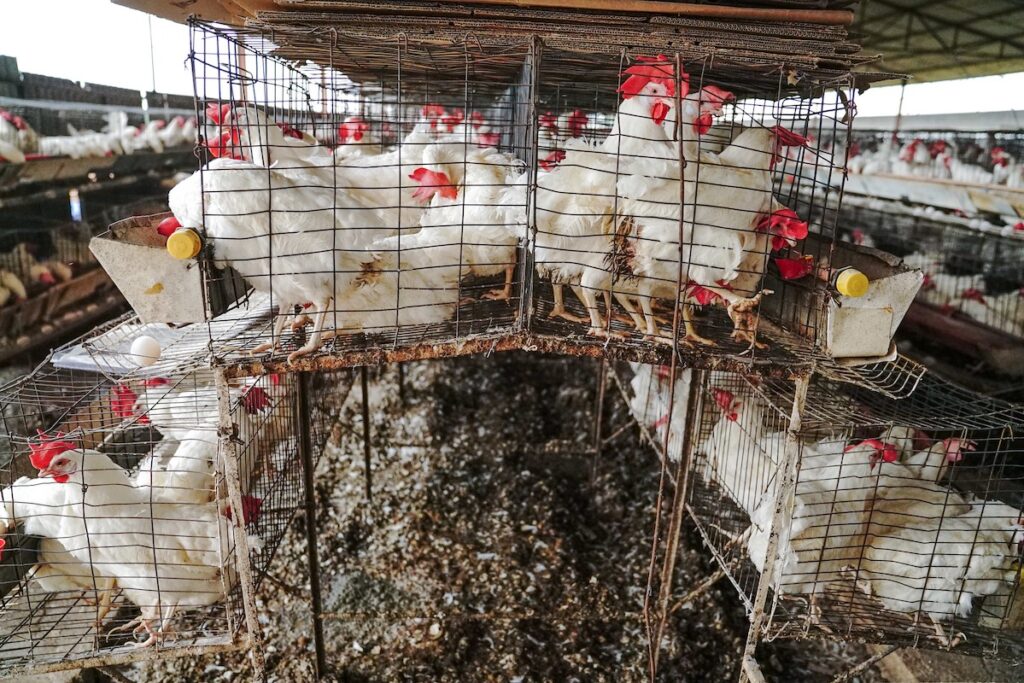
Factory farms have windowless sheds, where cages are stacked on top of each other in rows. Tens of thousands – or even hundreds of thousands – of hens will be confined in one facility. Each bare wire cage, called a battery cage, is only a few feet wide. Still, 4-10 hens are confined in each one.
A hen will typically spend her entire life inside an 8-square-inch space, which is approximately the size of a piece of paper. This is where she eats, drinks, urinates, defecates, and sleeps. She will never spread her wings, perch, forage for food, or perform any natural activities. She won’t breathe fresh air or experience sunlight until she’s sent to slaughter.
2. Male chicks are shredded alive on their first day of life.
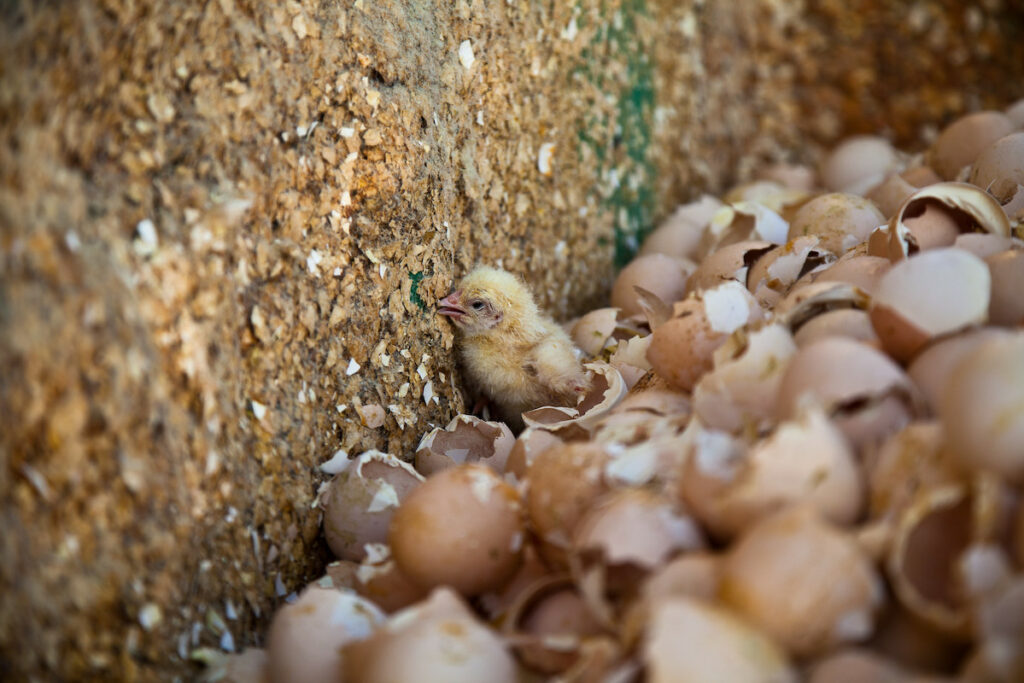
Because male chicks can’t lay eggs, they are considered waste products by the industry. The egg industry kills male chicks within their first hours of life by grinding them up alive or suffocating them. Other times, they’re set on fire or thrown into garbage cans and left to slowly die.
Around 7 billion male chicks are killed by the global egg industry every year.
3. The industry amputates hens’ beaks without anesthesia.
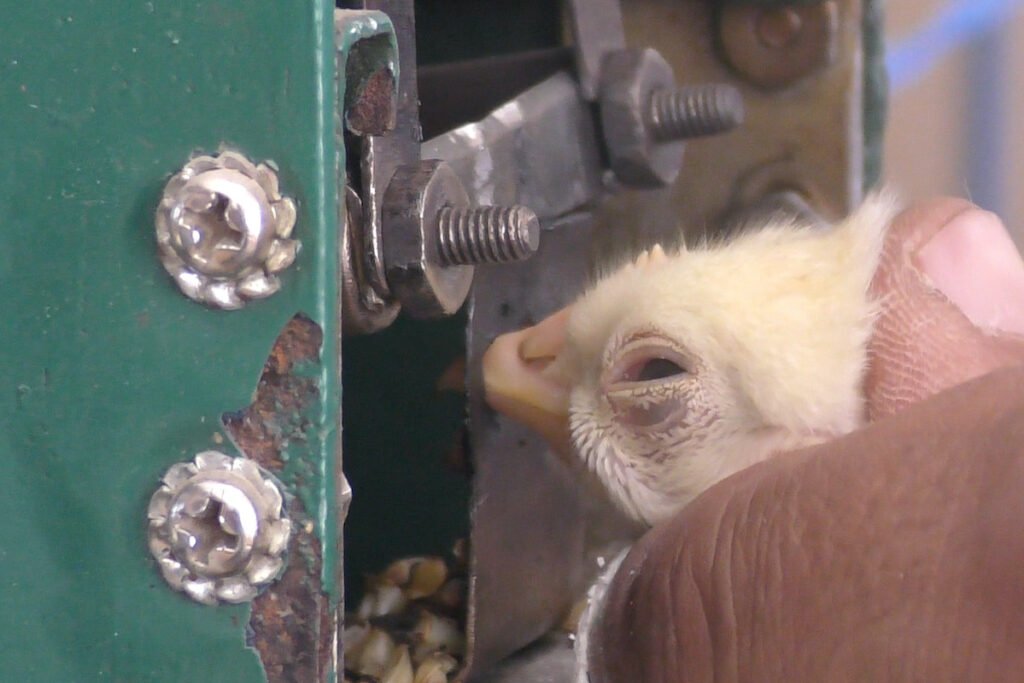
Overcrowding causes psychological anguish for hens, resulting in aggression and pecking. Shortly after a young female chick has hatched, the egg industry will remove over one-quarter of her sensitive beak. Beak amputations are performed without pain killers.
These amputations have long-term consequences. A hen may be less active or interested in food, and she might grow more slowly. Many hens even develop nerve growths, or neuromas, at the end of her beak. These can cause chronic pain.
4. A hen will develop painful foot problems from living on wire floors.
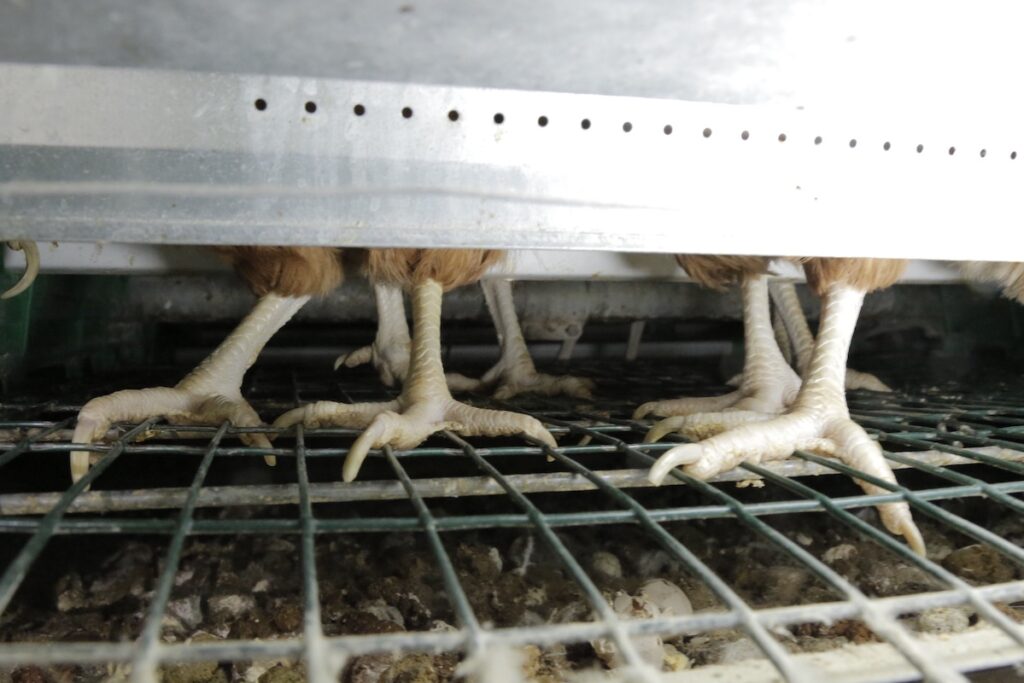
Hens are kept on wire flooring with large openings so waste can drop through to trays below. A hen who lives her entire life in a cage experiences a number of debilitating foot conditions, including overgrown claws that become entrapped, injured, or grow around the wire.
The floors of cages are often sloped, which puts pressure on a hen’s footpads and may result in open wounds or ulcers.
5. Factory farms are a breeding ground for disease.
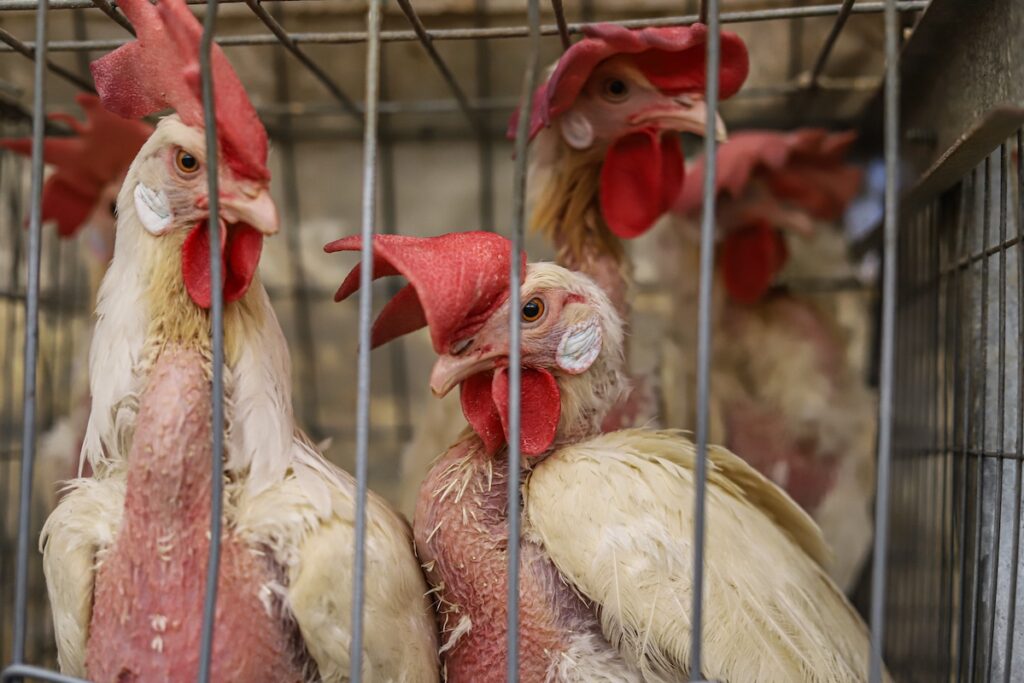
Hens caged in crowded, unsanitary conditions experience constant stress that weakens their immune systems. This creates an environment ideal for rapidly transmitting infectious diseases.
Common diseases that affect egg-laying hens include E. coli and Salmonella infections, fowl cholera, infectious coryza, avian influenza (bird flu), and infectious bronchitis, just to name a few.
6. Hens are exposed to noxious gasses from waste buildup.
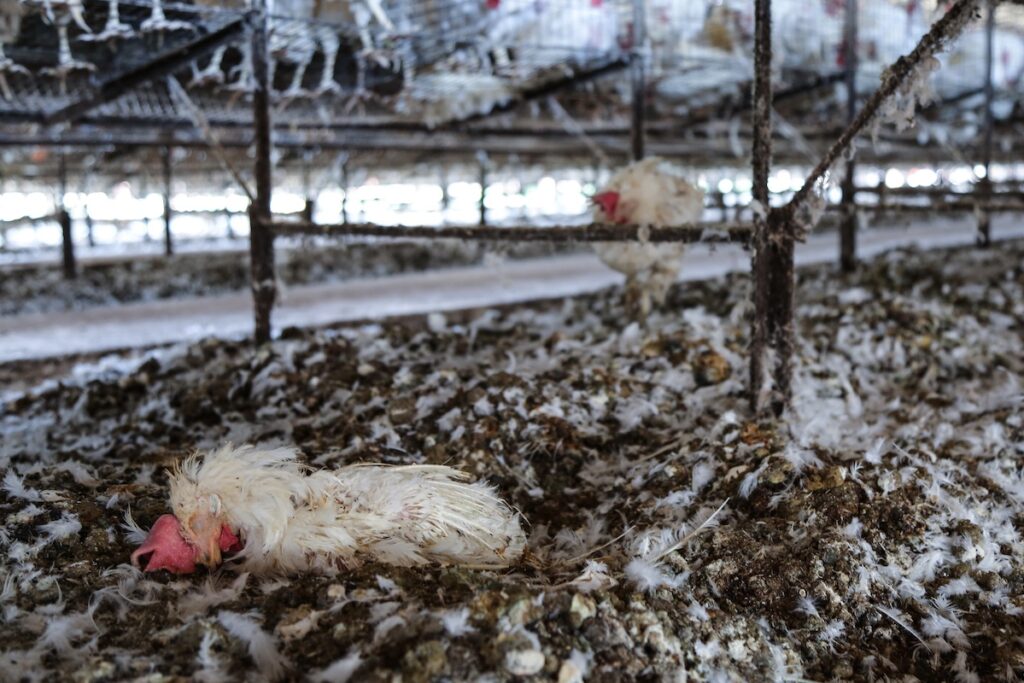
Because hens’ waste is never cleaned, it piles up on the floors of sheds and cakes the bottoms of cages.
As this waste decomposes, it releases ammonia. This ammonia buildup damages hens’ eyes and burns their respiratory tracts, causing respiratory diseases and infections. Hens may lose their appetites, causing weight loss and weakness.
7. Genetic selection leads to more disease and suffering.
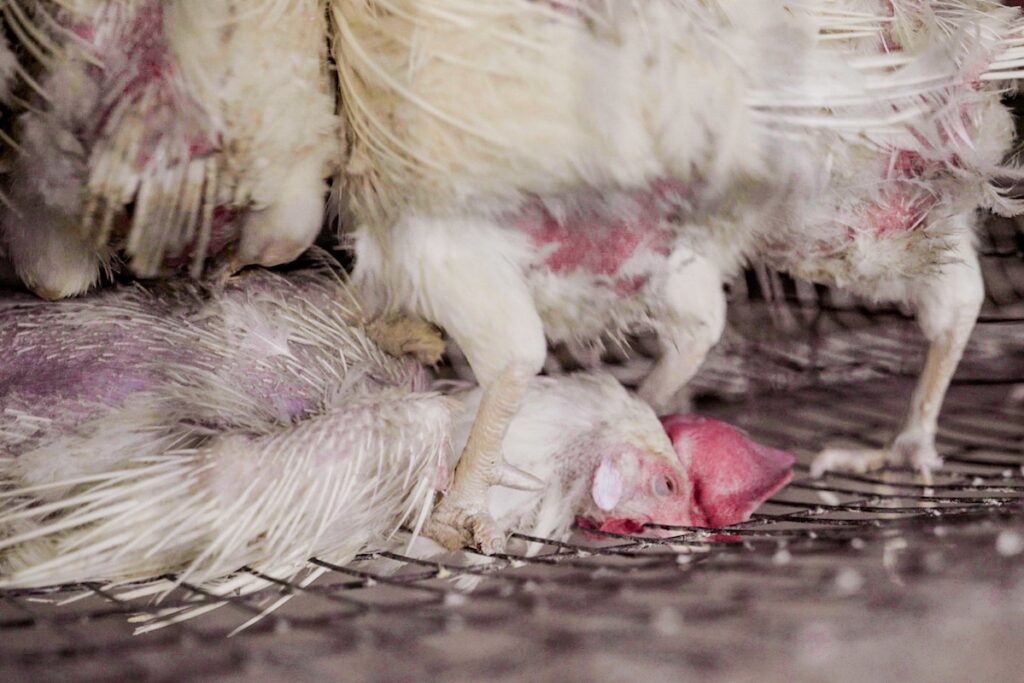
A hen on a factory farm lays eggs at an unnatural pace, and this takes a toll on her body. To increase egg production, factory farm workers often expose hens to 16 hours of artificial light. Other hens will undergo molting – or forced starvation – for up to two weeks. This resets their laying cycles and further stimulates egg production. Many will experience molting up to three times in their lives.
This unnatural pace of egg production, along with genetic selection, causes disease. Ailments include osteoporosis from calcium depletion, fragile bones, lameness, paralysis, and fatty liver syndrome. In many cases, an egg will become stuck in a hen’s body, resulting in infections. They are denied veterinary care for these conditions.
8. The reward for a life of egg production is certain death.
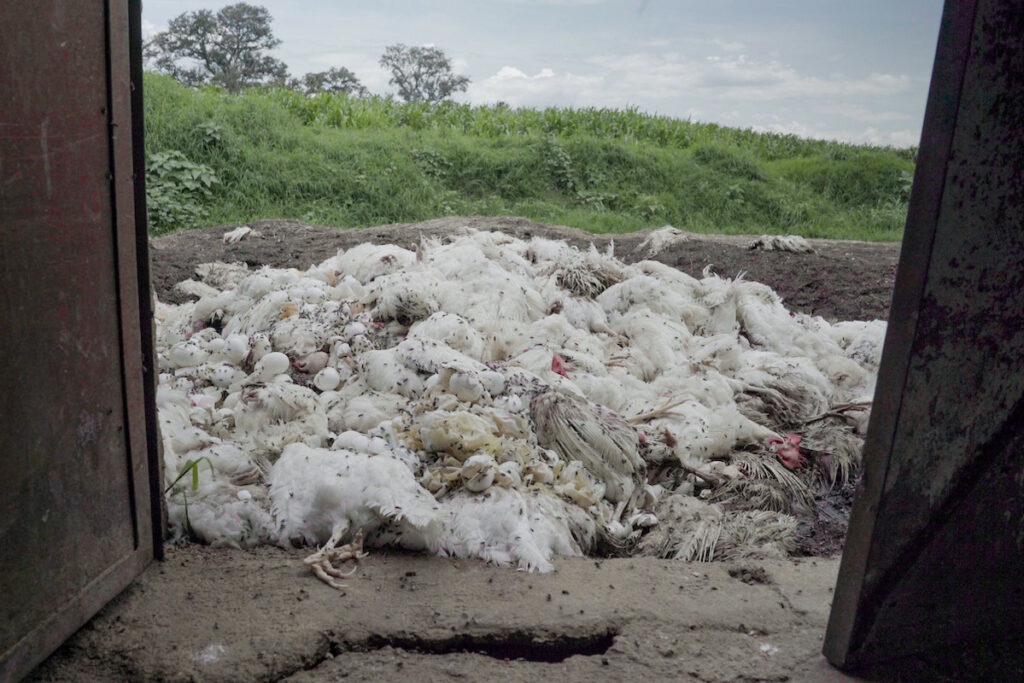
When hens die in their cages from infectious disease or exhaustion, their bodies are often left there to decompose. Their living companions will trample their lifeless bodies. Others are thrown in dumpsters.
Those who survive this misery are slaughtered after 18 months of life, when their egg production slows. A hen’s natural lifespan is around 8 to 10 years.
What You Can Do
Millions of people around the world have already refused to pay for this hidden cruelty. By replacing eggs, meat, and dairy with plant-based proteins, they’re saving animals one bite at a time.
Replacing eggs with compassionate and delicious options has never been easier! With everything from ready-made egg replacers to simple, whole food substitutes, you’ll still enjoy your favorite breakfast foods and decadent baked goods.
For tips on how to begin your plant-based journey, we’ve got you covered. Simply head over to Love Veg, where you’ll find free resources to jumpstart your transition and get your culinary gears turning.
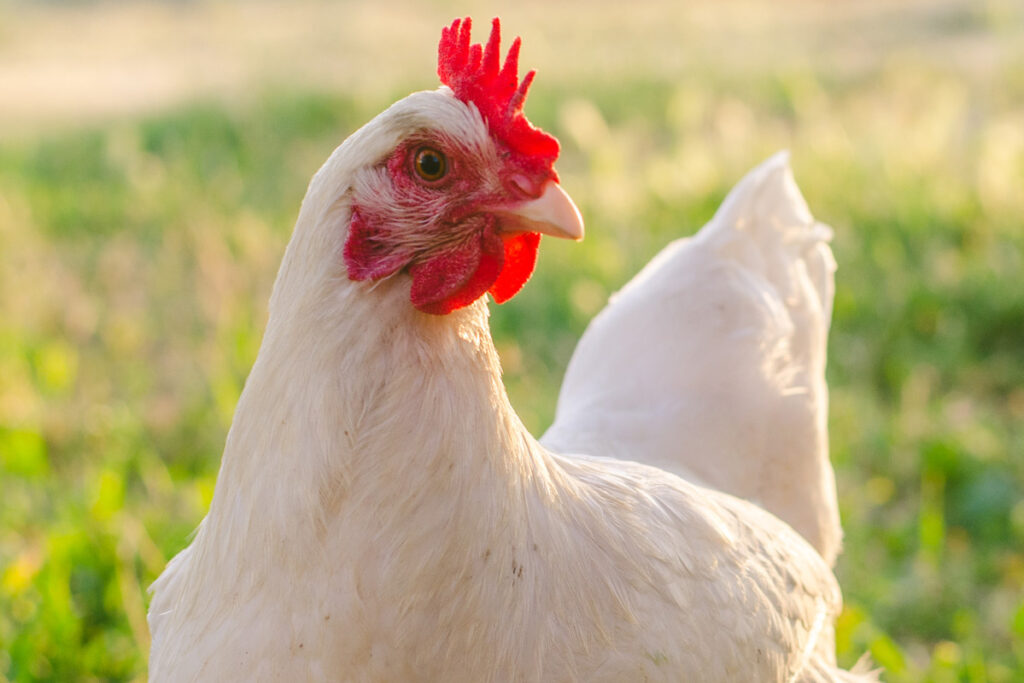
CHOOSE LOVE
Chickens are emotionally complex animals capable of empathy and forming special bonds with fellow animals.
Protect these sensitive and social animals by choosing plant‑based alternatives.
Recommended

